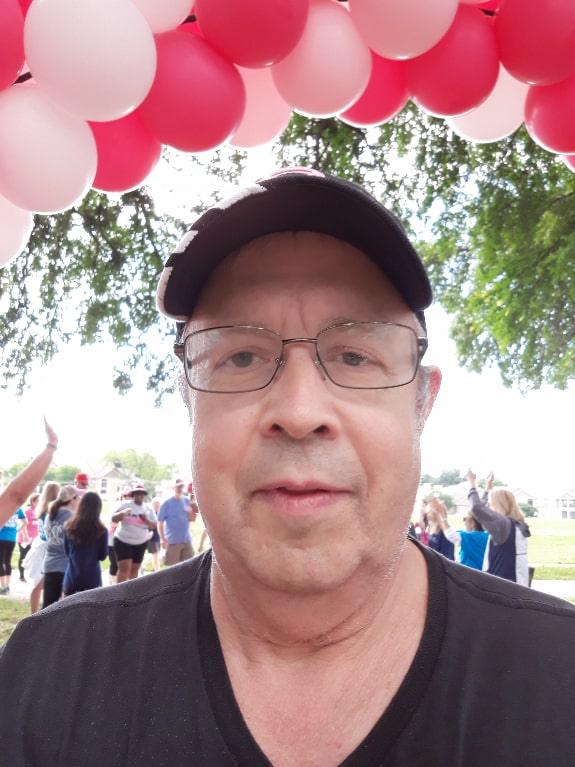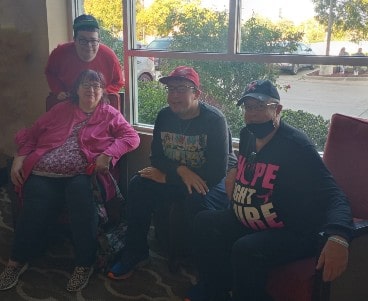
Richard Williams never expected he’d be diagnosed with breast cancer. Married with two sons, Richard learned he had stage 3 breast cancer in July 2009.
Richard was in the shower and felt something under his armpit. “It was a lump, it was unusual,” he said. He felt under his other armpit but didn’t feel anything unusual.
Richard, who is diabetic, already had a doctor’s appointment scheduled for later in the week. Before the appointment ended, he asked his doctor about the lump he felt. “She was concerned. She thought maybe it was cyst,” he said.
Richard underwent a biopsy of the lump soon after, and a week later, received a call. “They told me to come in, and to make sure Terri, my wife, was with me. I knew something was up,” he said.
When the doctor told Richard he had breast cancer, his first thought was about his family. “I was worried about them, about what they were going to do if I wasn’t there. My sons were 9 and 11.” Richard’s family and friends were as surprised by his diagnosis as he was, but they rallied around him.

It hadn’t occurred to Richard that breast cancer was a disease men could get, though he does have family history on both sides. “My grandmother on my father’s side died of breast cancer, and I have uncles on my mother’s side, one who had prostate cancer, who died, and one who went through treatment for colon cancer,” he said.
Given his family’s history, Richard did have genetic testing, and tests showed he is not a carrier of the BRCA 1/2 gene mutations. “That made me feel good for my sons,” he said.
Richard’s treatment included a mastectomy and the removal of 13 lymph nodes, as well as three lesions. Once he recovered from surgery, Richard underwent chemotherapy and radiation therapy. After that, he was on oral medications for 10 years.
“You kind of form a little support group when you’re going to your chemo appointments,” he said. “If you’re at the start of treatment, people tell you what to expect, what they’ve done that’s helped them. Then, when you’re closer to the end of treatment, you’re the one who is experienced and helping the new people.”
Family was a big support for Richard, and he encourages others to lean on their family, if possible, while undergoing treatment. “I also think finding support groups is important,” Richard said. “I’m a part of a group for men with breast cancer, and it’s been really helpful.”
Richard’s scans continue to show no evidence of disease. “I never expected the lump I found to be breast cancer,” he said. “It’s important for me to share my story so other guys understand this is something we can get, too. There’s no ‘typical’ cancer patient. Cancer affects us all.”
Learn more about breast cancer in men.
Statements and opinions expressed are that of the individual and do not express the views or opinions of Susan G. Komen. This information is being provided for educational purposes only and is not to be construed as medical advice. Persons with breast cancer should consult their healthcare provider with specific questions or concerns about their treatment.



